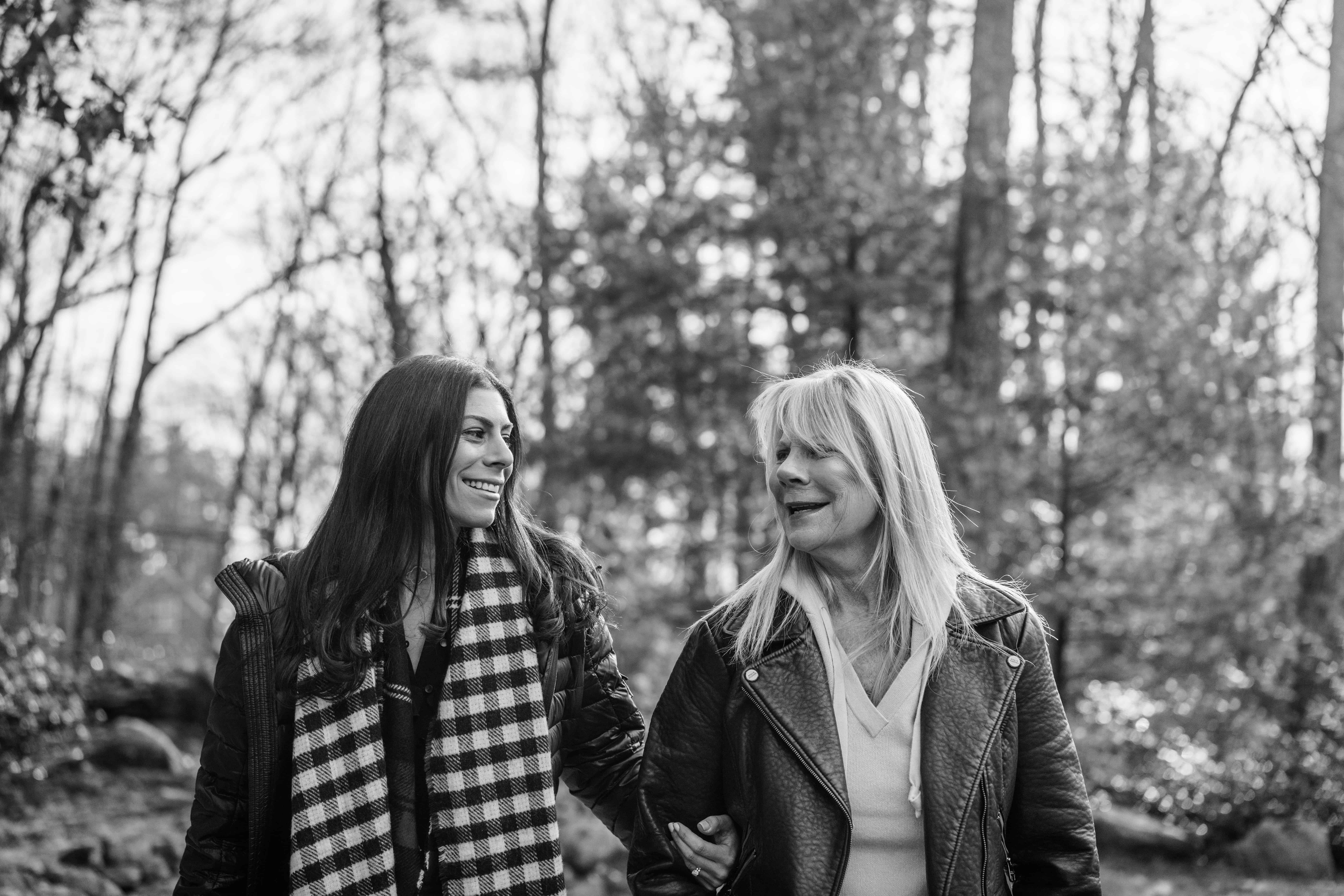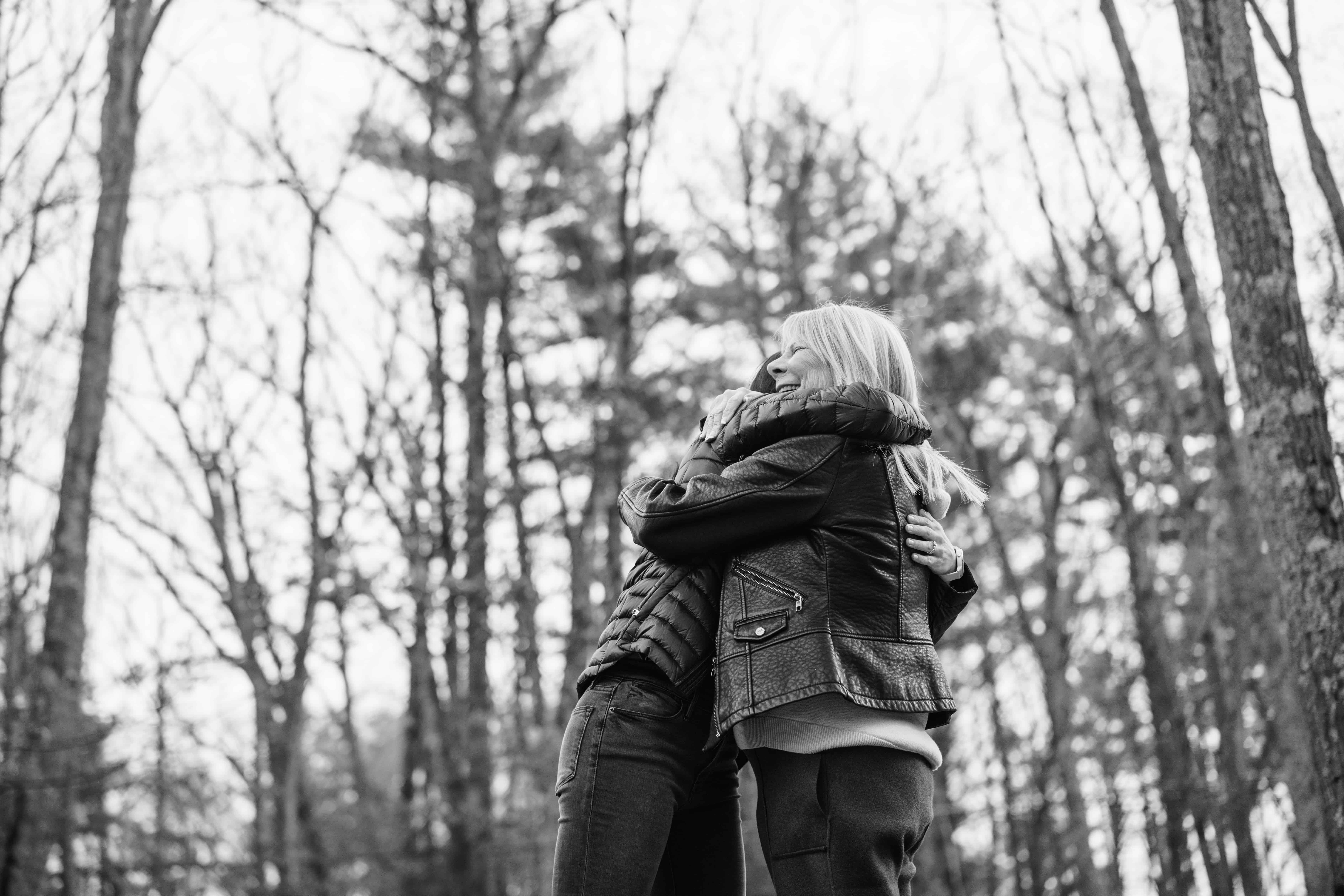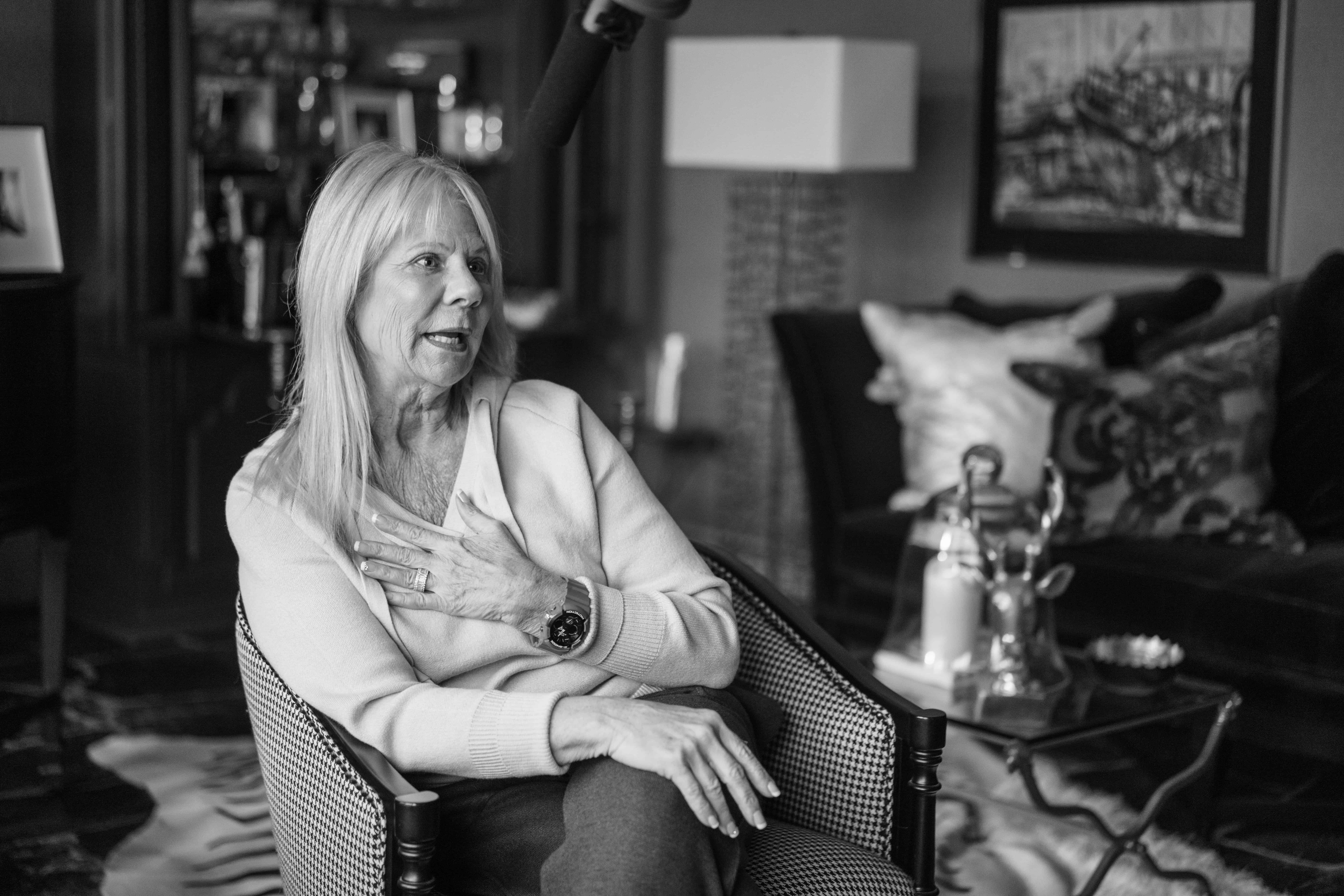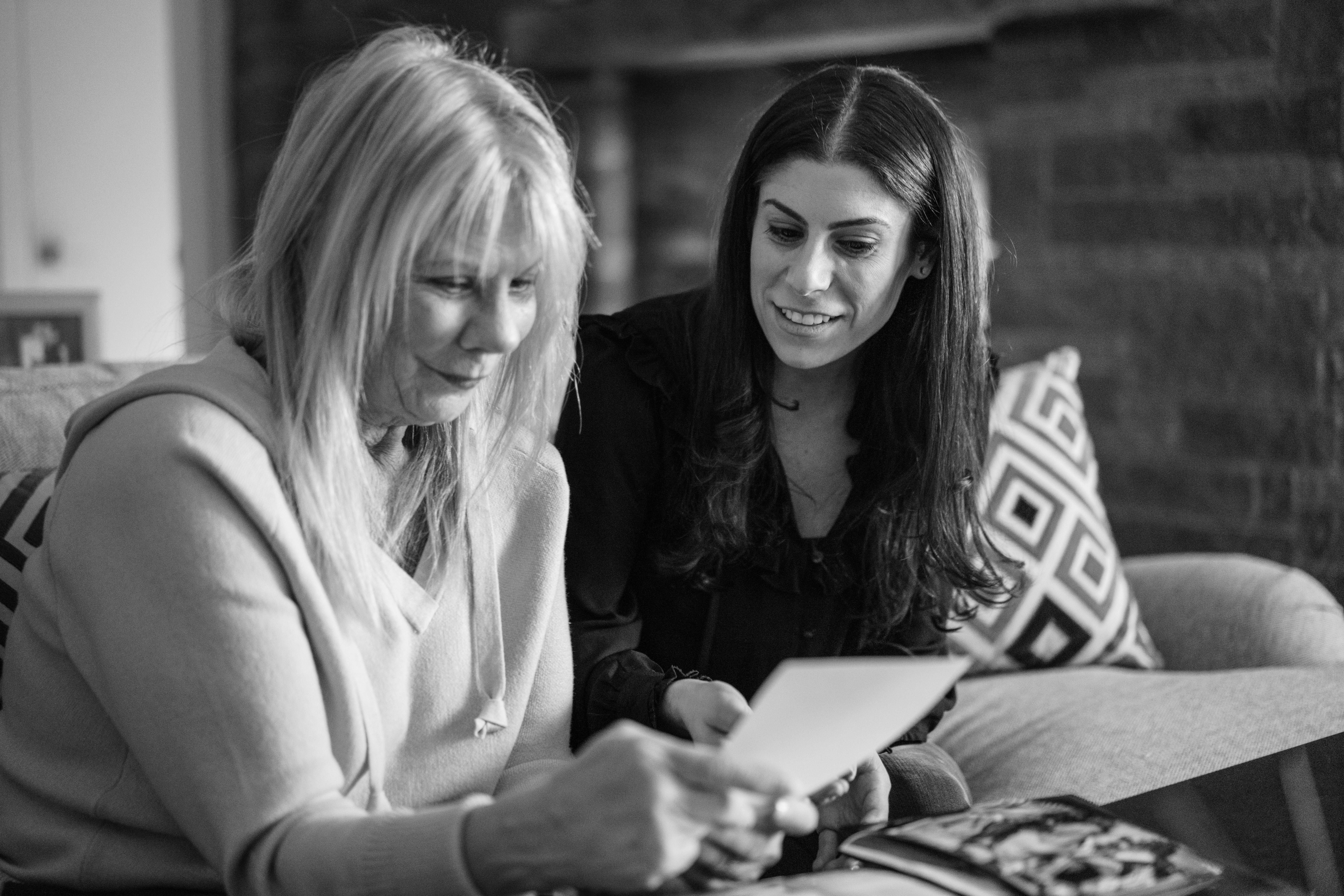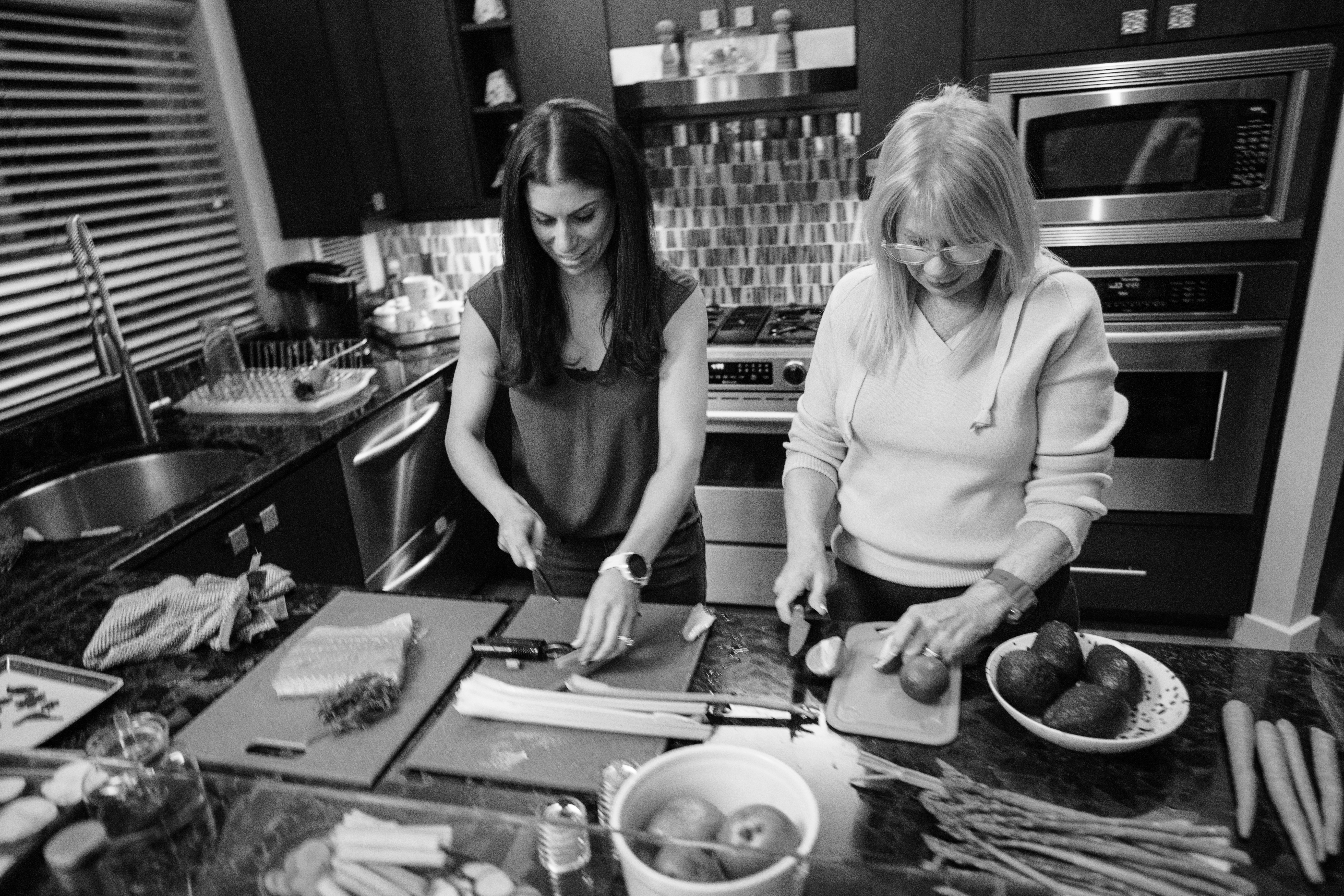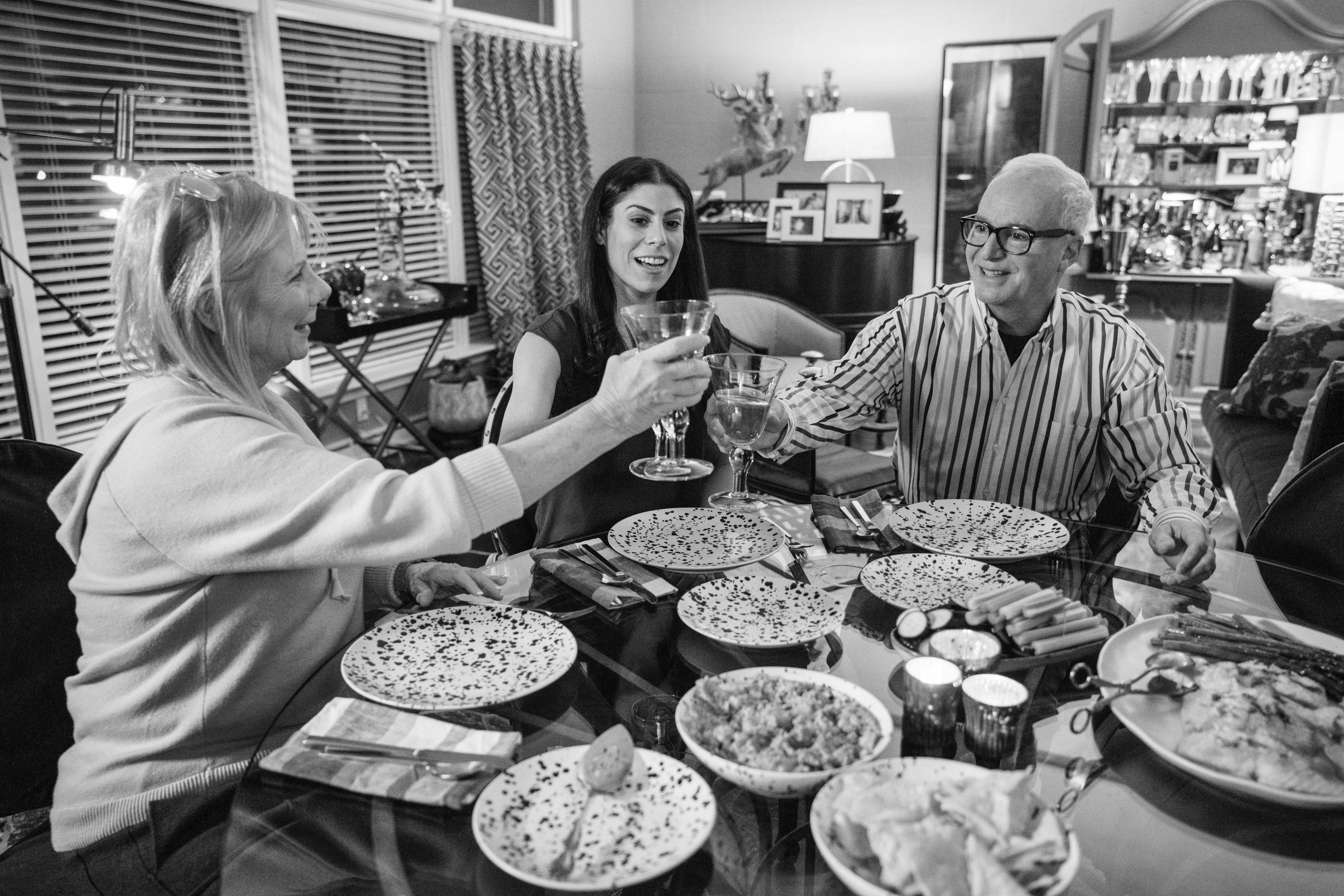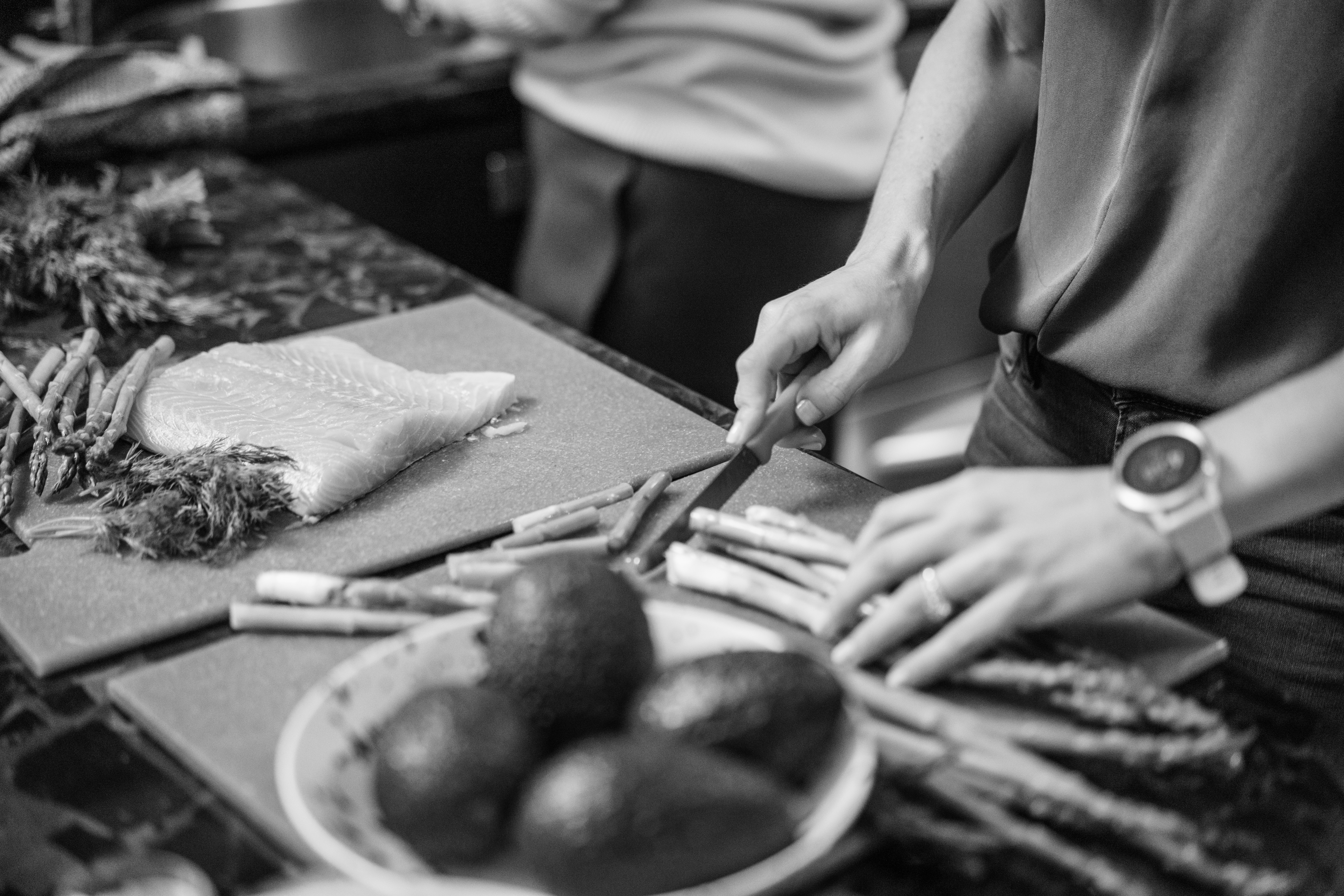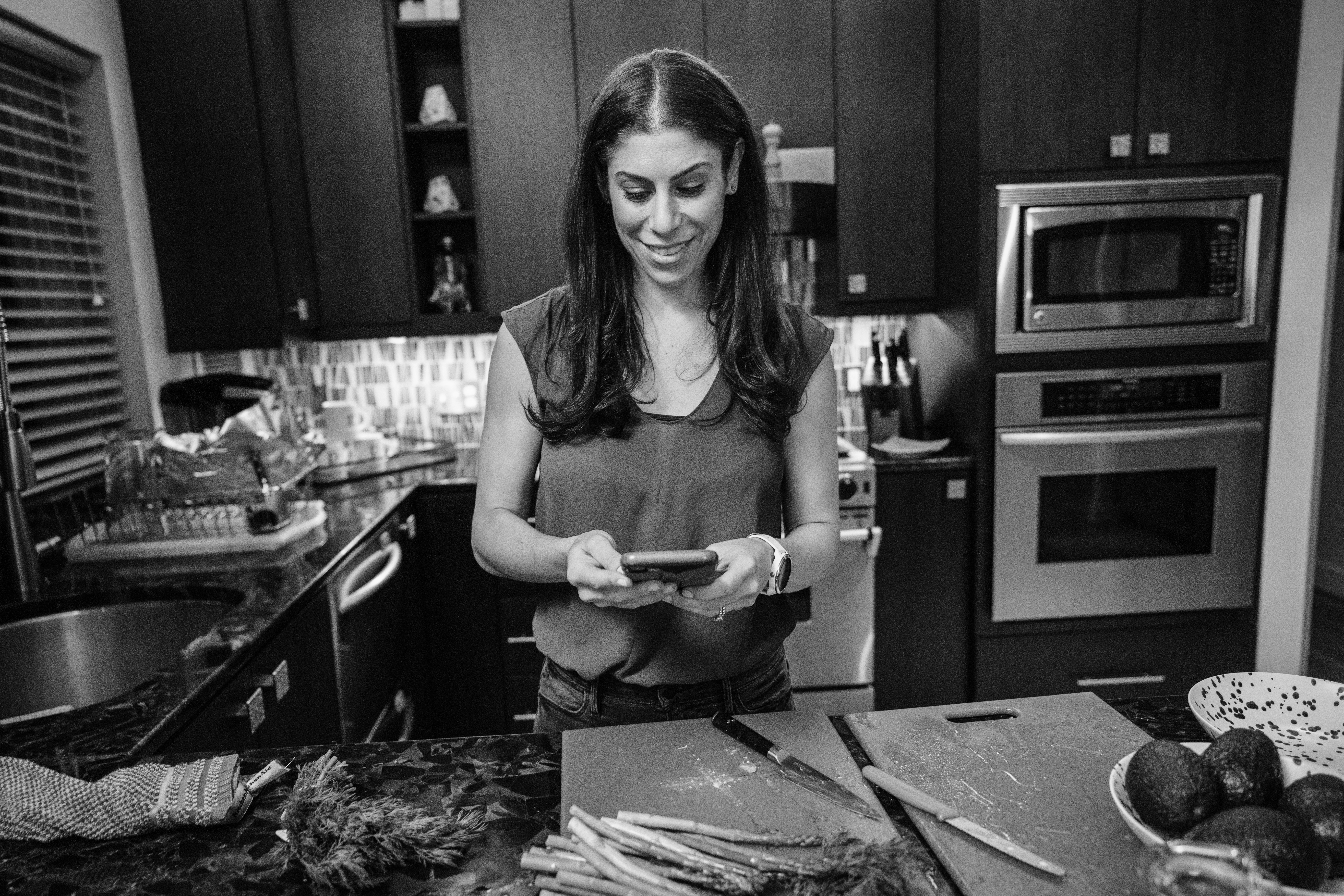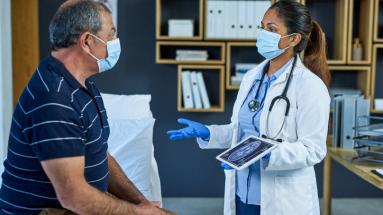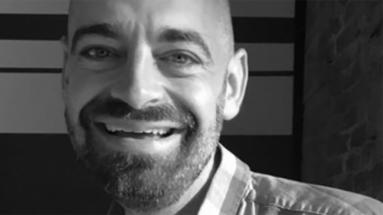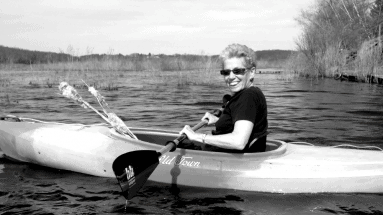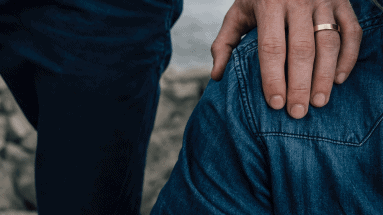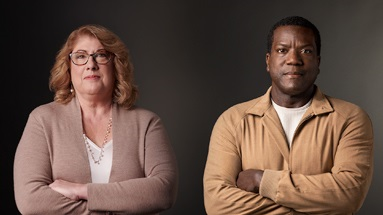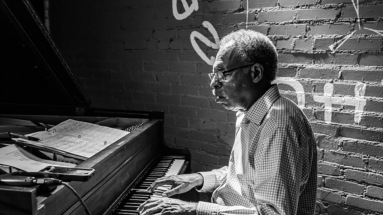Melissa and Leslie’s story: The power of food
Melissa and Leslie's story:
The power of food
Melissa and Leslie's story:
The power of food
[Melissa] When my mom was diagnosed it was just an innate feeling that it was time to care. It was time to step up to the plate. It felt like this is my duty. I’m her daughter, here we go.
I was in the process of becoming a dietitian. I’m a firm believer that you can fuel our bodies through food and heal.
I remember that it was a very joyous time to be graduating and it was quickly taken away from me.
She had a really bad diagnosis. Metastatic breast cancer.
[Leslie] The weekend that I found out, I said to the doctor, "Am I going to live?"
[Melissa] I took you to chemo and I said...
[Leslie] We were told, you will go through to chemotherapy, you will go to radiation, and you will live to a ripe old age.
[Interviewer] Did you believe them?
[Leslie] No. Not a word.
[Melissa] You look so pretty there.
I remember I would go into her room I would lay with her in bed and just cry. I had a really hard time with it.
[Leslie] It must have been horrible for you thinking that your mom wasn’t going to be here forever.
[Melissa] It was a concern of mine that I would have my wedding and my mother wouldn’t be there.
[Leslie] It wasn’t easy. It was very difficult.
[Melissa] I didn’t think my mom would walk me down the aisle. Like these were important moments of my life that I wanted.
[Leslie] When my diagnosis came along I’m like, no. I’m fightin’ this. I’m going to fight this and live for my kids. Yeah.
[Melissa] I just - I felt like as a family we would get through this.
[Leslie] Smell this smell.
[Melissa] We researched together on certain foods to include and avoid. And that’s really where I feel that I became even a better dietitian than I am today.
[Leslie] She knew that I wasn't going to be eating red meat anymore. There were combinations of food that I wasn’t going to do anymore. And so she really embraced that. That may have contributed to her success as the dietitian that she is today.
[Melissa] Cheers. To a great day.
[Leslie] To an amazing day. Yeah.
[Melissa] One day it just - I stopped worrying. It was a relief that came over me. My mom is my hero. Yeah. She’s incredible.
When Melissa graduated from college in 2004, she knew she was going home to visit her mother, Leslie, in New Hampshire before starting her nutrition internship in New York City. But she didn't realize just how much their lives were about to change.
During her annual mammogram, Leslie's doctors discovered that something wasn't right. Shortly after that, they diagnosed her with stage IV metastatic breast cancer.
For Leslie, breaking this news to Melissa and to the rest of her family was extremely difficult. Before she told anyone what she was facing, she wanted to fully understand her diagnosis and her treatment plan.
And her doctors wasted no time putting that treatment plan into action. A week after her diagnosis, Leslie would have surgery, followed by chemotherapy and radiation. Her doctors assured her she would "live to a ripe old age." Leslie was far from convinced. She feared she wouldn't be able to share valuable moments with her family in the years to come.
A role reversal
This was a whole new world to me. It was time to reverse the roles and start caring for my mother.
Leslie and Melissa were both shaken to their cores. "I remember that it was a very joyous time to be graduating," Melissa says, "and it was quickly taken from me. I wanted to be positive, but deep inside I was broken. I didn't think we would make it to my wedding—didn't think my mom would walk me down the aisle. This was a whole new world to me. It was time to reverse the roles and start caring for my mother."
We learned, in the end, it doesn't really matter who the parent is.
This reversal of roles was difficult for Leslie, too, who ran an interior design business with her husband. Although she insisted on working during her treatments, Leslie needed to adjust to a change in lifestyle. "I'm really self-reliant and independent," she says. "So to have somebody come into my house—especially my own daughter—and be the caregiver was different. But we learned, in the end, it doesn't really matter who the parent is."
The power of food
I'm a firm believer that we can fuel our bodies with food.
Melissa helped Leslie by making sure she got enough rest and driving her to doctors' appointments. But perhaps the most important way she cared for her mother was by using her expertise as a dietitian to cook healthy, nutritious food.
"I'm a firm believer that we can fuel our bodies with food," says Melissa. She researched which types of food were best for people living with cancer. Cooking for Leslie made Melissa realize how essential good nutrition was for her mother's healing. "I feel like this is really how I became the dietitian that I am today," Melissa says.
I think having a good sense of humor, the power of hope, and great family relationships—all that love—I think that was the mix of ingredients that kept me here.
Leslie was so grateful to have Melissa cook for her and help her understand which foods she should eat or avoid. It was one of the many ways she felt loved and supported. "I think having a good sense of humor, the power of hope, and great family relationships—all that love—I think that was the mix of ingredients that kept me here," she says.
The reality of "surviving"
Leslie could hardly believe her doctors when they told her the cancer was gone. "I couldn't stop being afraid of this disease," she says. "And it did come back."
She went to her doctor after noticing a pain in her chest. This time, the cancer was in her sternum. Unlike with her first diagnosis of breast cancer, her doctors weren't immediately sure how they would treat this cancer. So, in some ways, this second diagnosis was even more terrifying than the first.
But her doctors came through once again with a plan to remove the tumor in her bone. "And here I am today," she says. "I'm in remission. I've never felt better. I'm healthy. I'm happy."
The importance of giving back
Melissa and Leslie both believe it is their duty now to help other people living with cancer. "You can't just say, 'okay, I'm in remission, thank you very much,'" Leslie says. "I felt compelled to give back; that's who I am." To that end, Leslie developed a show house in Bedford, New Hampshire, to raise money for the American Cancer Society and invited 17 professionals to design each of the rooms. The house was open for three weeks, with people lining up to buy tickets and support her cause.
I felt compelled to give back; that's who I am.
For her part, Melissa took everything she had learned about caring for her mother over the years and put it toward helping others living with cancer. "I could use all this knowledge I had gained and apply it to the patients I was working with," she says. "I even developed close relationships with some of them. Going through this experience with my mom made me that much more prepared to help them through their own illness."










